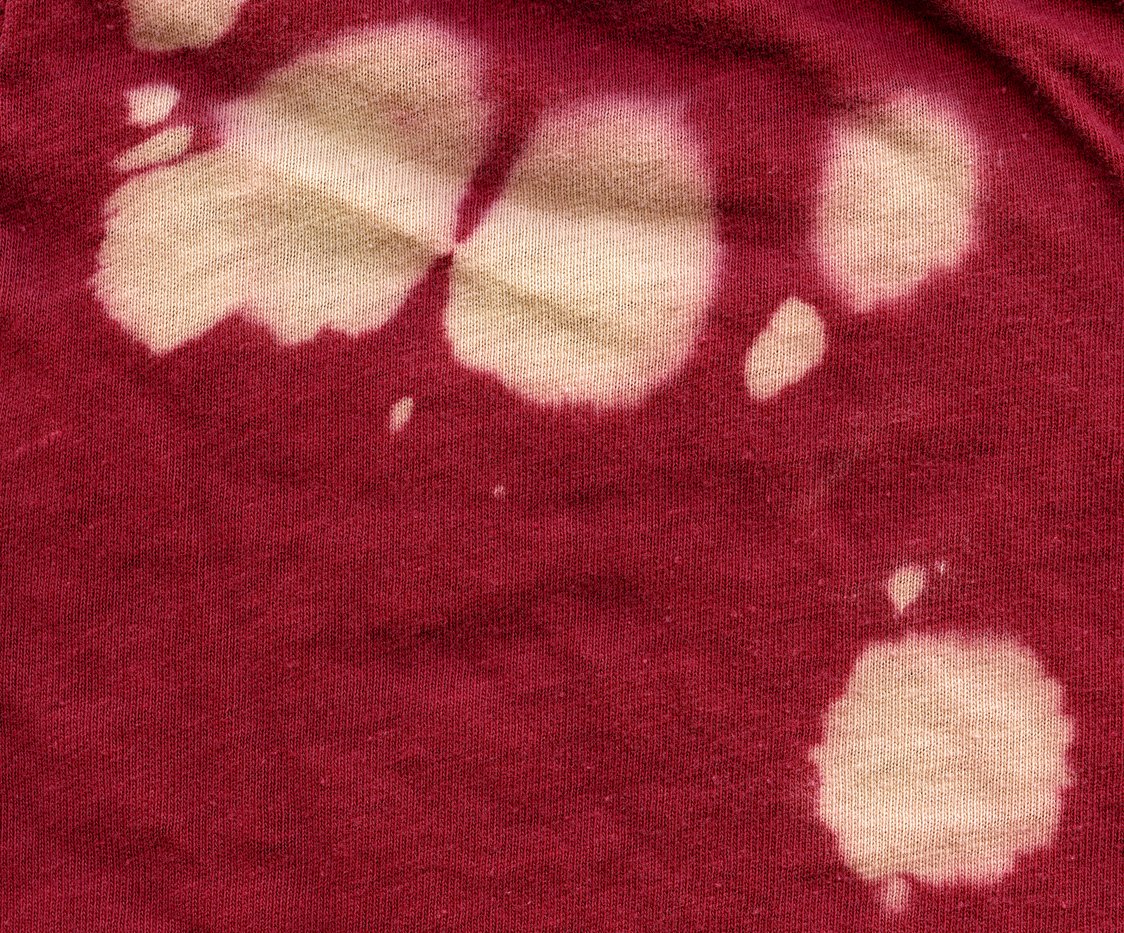Removing bleach stains from clothing can be challenging, but it’s not impossible. Here are some steps you can take to try to salvage your garment after a bleach stain:
1. Act Quickly:
- Identify the fabric: Different fabrics require different treatments. For cotton or wool, use ammonia, and for other materials like synthetics or linen, use hydrogen peroxide.
- Dab the stain: Use a clean cloth to blot the bleach stain. Avoid rubbing, as it can spread the bleach and make the stain worse.
- Wash the garment: Launder the item as usual, either by hand or in a washing machine. The quicker you treat the stain, the better the chances of removing it.
2. Special Cases:
- Velvet: Gently rub the stain with soft-grain sandpaper.
- Leather: Blot the bleach with absorbent paper or a dry cloth. Then, use shoe polish of the same color as the leather to cover the stain.
- Silk: Silk is delicate and challenging to treat. If professional dry cleaning doesn’t work, consider camouflage or covering the stain.
3. Try Staining the Stained Area:
- For solid-colored garments, try dyeing the stained area with a fabric dye kit that matches the original color. Follow the instructions carefully.
- Alternatively, use a textile marker that matches the garment’s color to conceal the bleach stain. Visit a craft store to find the right shade.
4. Be Creative or Opt for a Cover-Up:
- If all else fails, you can creatively cover or hide the bleach stain. Options include iron-on patches, badges, pins, brooches, lace inserts, added pockets, or creating a “tie-dye” effect.
- To create a tie-dye effect, bunch up the garment, spray with diluted bleach (cold water), or immerse it in a bleach-water mixture for a two-tone effect. Rinse in cold water and wash the garment alone in the machine to avoid spreading bleach to other clothes.
Remember that these methods may not always completely remove the bleach stain, but they can help salvage the garment or give it a new look. Be cautious and test any treatment on a small, inconspicuous area of the fabric first to ensure it won’t cause further damage.

